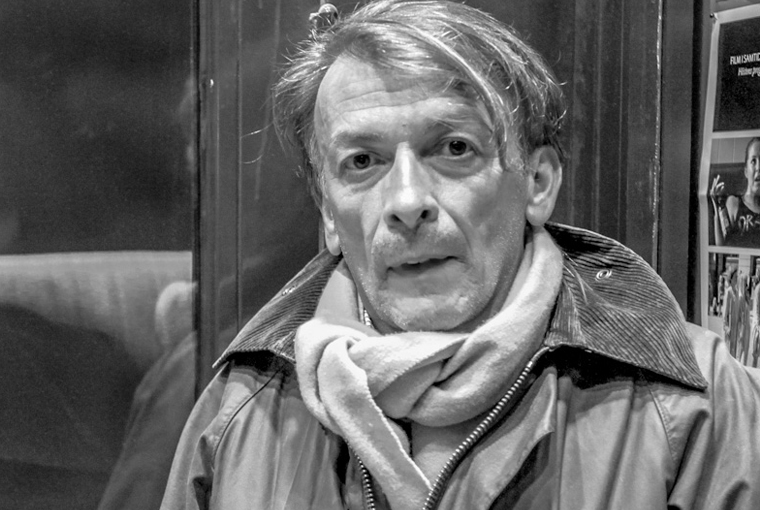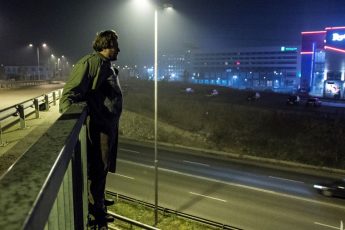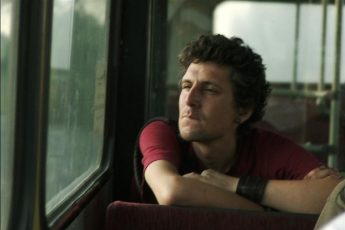
We met Emil Christov during the Thessaloniki IFF, where his film “The Color of the Chameleon” received the Special Jury Mention.
Why did you decide to use symbols in a film about a historical reality?
What do you mean?
For example the scene where the main character holds two fake eggs…
The eggs are a symbol taken from the film The Matrix. We have many references in the film. The whole story is a reference to…
…Casablanca
No, to Patricia Highsmith’s The Talented Mr. Ripley. I was also inspired by the Cohen brothers. There are a lot of cultural, historical, musical, references from many movies. It’s the critics job to comment on that, not mine.
You also used some direct citations in the film…
Yes, there are two. The first is from the movie Casablanca, and the second is from Dr Caligari. With Casablanca, we were joking. We’re joking everywhere, with everything, and everyone. We’re joking with how our main actress is interpreting Casablanca. For example, if you remember at some point in the movie, the main character asks the actress what the movie is about, and she says it’s about two Bulgarians who want to escape to America. But Casablanca is not about Bulgarians!
We use Caligari to show the fall of Communism.
Does the chaotic story-line of the movie have any connection with the historical period in which the movie takes place?
The storyline we have is like a puzzle. We’re just showing pieces, and it’s up to the viewer to put them together. It’s not a political movie. It’s a movie about a lonely freak. We just use this historical time – the change from totalitarianism to democracy – as a setting, but actually we are talking about the pleasure of spying. The story could take place anywhere, regardless of the historical circumstances.
Some of the characters in the movie change completely.
It really happened in Bulgaria. My main interest is to understand how people can change in two years, two months, even two days. In Bulgaria the transition between Communism and Democracy changed a lot of people. A lot of people took over unnecessary positions for short periods of time. They changed a lot, even their appearance. For example, a university professor of cultural sciences became an ambassador, but only for a year.
Did you talk about the secret police to represent reality?
Let me tell you something about the secret police in Bulgaria. Bulgaria is very religious. You even have archbishops which rule different parts of the country, there are fifteen of them. Eleven of them were secret agents. And this is only the church. I’m not even talking about the university, politics, etc. Can you imagine what that means?
But my movie is not about the secret police, it’s about the pleasure of spying.
Thank you for the interview.




Leave a Comment